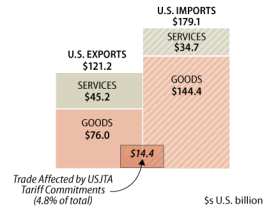Japan Reaches New Tariff Elimination Milestone, Signaling Boost to Global Trade

Tokyo, Japan – Japan has reportedly achieved a significant milestone in its trade liberalization efforts, with 0% tariffs taking effect for certain goods as of October 28, 2025. The development, announced by market and economics analysis firm Geiger Capital, marks a new phase in Japan's commitment to fostering international trade and economic integration. This move is expected to have broad implications for various sectors, potentially lowering import costs and enhancing export competitiveness.
"0% TARIFFS FOR JAPAN STARTING TODAY," Geiger Capital stated in a social media post, highlighting the immediate impact of the policy change.
This tariff elimination is likely a scheduled progression within one of Japan's comprehensive trade agreements, such as the Comprehensive and Progressive Agreement for Trans-Pacific Partnership (CPTPP) or the Regional Comprehensive Economic Partnership (RCEP). These agreements typically feature phased tariff reductions over several years, with many product categories eventually reaching zero tariffs to promote deeper economic ties among member nations. The CPTPP, for instance, aims to eliminate 99% of tariffs among its signatories, while RCEP targets significant reductions over a 20-year period.
The implementation of 0% tariffs is anticipated to streamline supply chains and reduce costs for businesses engaged in trade with Japan. For consumers, this could translate into lower prices for imported goods, increasing purchasing power. Japanese industries, in turn, may see improved access to foreign markets, bolstering their export volumes and global market share.
Analysts suggest that such tariff reductions underscore a continued global trend towards trade liberalization, despite occasional protectionist sentiments. Japan, as a major global economy, plays a pivotal role in shaping international trade policy, and this latest development reinforces its position as a proponent of open markets. The long-term economic benefits could include increased foreign direct investment and enhanced regional economic stability.